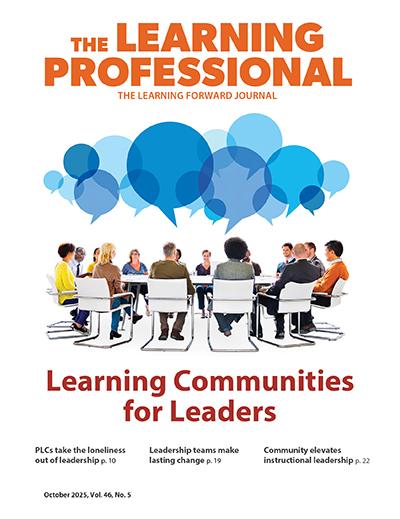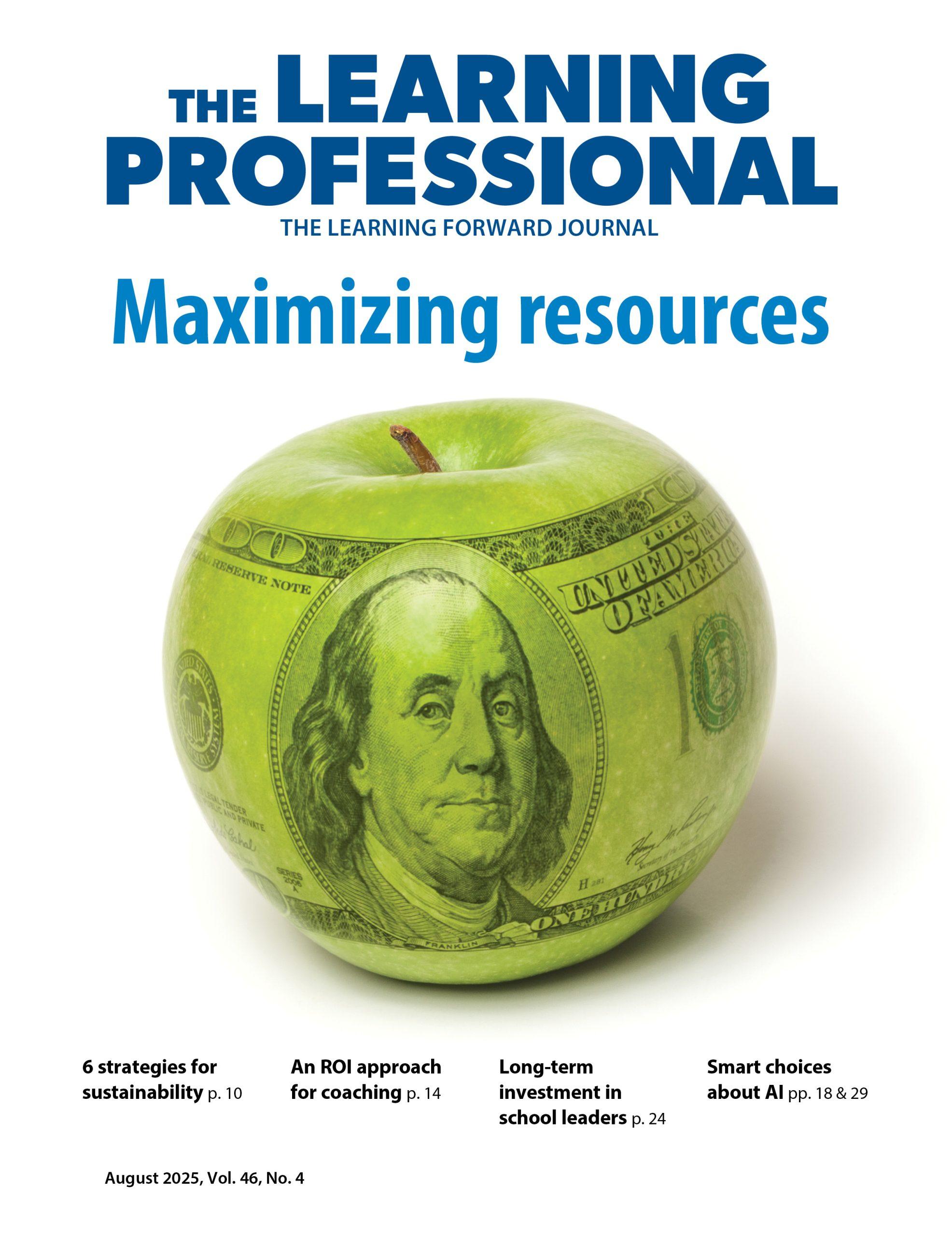The Character Of A Coach
Success depends on trustworthiness
By Learning Forward
Categories: Coaching, Implementation, LeadershipFebruary 2015
Read the remaining content with membership access. Join or log in below to continue.
Sed ut perspiciatis unde omnis iste natus error sit voluptatem accusantium doloremque laudantium, totam rem aperiam, eaque ipsa quae ab illo inventore veritatis et quasi architecto beatae vitae dicta sunt explicabo. Nemo enim ipsam voluptatem quia voluptas sit aspernatur aut odit aut fugit, sed quia consequuntur magni dolores eos qui ratione voluptatem sequi nesciunt. Neque porro quisquam est, qui dolorem ipsum quia dolor sit amet, consectetur, adipisci velit, sed quia non numquam eius modi tempora incidunt ut labore et dolore magnam aliquam quaerat voluptatem.
The elementary school’s teachers lounge was an active center for meeting and collegial conversation — and the place to find out the latest news on anyone and everything. So it was no surprise one day to walk in on a group of teachers with their heads huddled together, shooting glances over their shoulder as the door opened.
As they continued their conversation, the gasps and whispers signaled that what they were saying probably wasn’t going to be helpful to anyone. In fact, one teacher was sharing a destructive rumor about a colleague whose students had scored very well on a recent round of districtwide common assessments.
The school’s staff had begun analyzing these data in their professional learning teams. The allegation being made was that the teacher whose students had done well had helped them cheat on the test. Of course, there was no validity to the accusation; however, the teachers in the lounge seemed to all agree and laughed.
The school coach, who was present, didn’t dispute the rumor and joined in the laughter. As rumors do, this one spread quickly. The coach even shared it with the principal’s secretary. By the end of the school day, emotional tension was high throughout the building. The teacher who was being talked about also heard the rumor — and left the building in tears.
“There is one thing that is common to every individual, relationship, team, family, organization, nation, economy, and civilization throughout the world — one thing which, if removed, will destroy the most powerful government, the most successful business, the most thriving economy, the most influential leadership, the greatest friendship, the strongest character, the deepest love. On the other hand, if developed and leveraged, that one thing has the potential to create unparalleled success and prosperity in every dimension of life. Yet it is the least understood, most neglected, and most underestimated possibility of our time. That one thing is trust.”
— S.M.R. Covey, 2008
The Six Trusty Oak Roots
1. Self-awareness
- What drives me? What inspires me?
- What values guide my actions?
- What contributions do I want to make to the world?
- What is my purpose for living?
2. Honesty
- How does what I think, do, and say align with my observations of the world
3. Sincerity
- How do I act intentionally on my values?
4. Competence
- What do I do so well that I am credible to others?
- What attitudes and aspirations do I have that inspire me to learn continuously?
- What effect does the technological, global world in which we live have on my competence?
- What results am I most proud of?
5. Reliability
- What do I do to ensure I keep my promises?
- What do I do when I fail to keep my promises?
6. Intentions
- When I am with others, am I truly interested in them and what they have to say?
- Do I genuinely want the best for others on my team and regularly acknowledge their contributions?
Cores of Credibility
Stephen Covey emphasizes building trustworthiness through four cores of credibility:
- Integrity: Are you congruent?
- Intent: What’s your agenda?
- Capabilities: Are you relevant?
- Results: What’s your track record?
Source: Covey, 2008.
References
Beslin, R. & Reddin, C. (2006, January-February). Trust in your organization’s future: Building trust inside and out is a key part of the communicator’s role as corporate conscience. Communication World, 23(1), 29-32.
Covey, S.M.R. (2008). The speed of trust. New York, NY: Free Press.
Goleman, D. (2002). Primal leadership: Realizing the power of emotional intelligence. Boston, MA: Harvard Business School Press.
Hirsh, S. & Killion, J. (2007). The learning educator. Oxford, OH: NSDC.
Hoffer, E. (2008). Reflections on the human condition. Titusville, NJ: Hopewell Publications.
Olalla, J. (2003). Trust. Olney, MD: Newfield Network.
Sparks, D. (2007). Leading for results (2nd ed.). Thousand Oaks, CA: Corwin Press & NSDC.
Tschannen-Moran, M. (2004). Trust matters: Leadership for successful schools. San Francisco, CA: Jossey-Bass.
Learning Forward is the only professional association devoted exclusively to those who work in educator professional development. We help our members plan, implement, and measure high-quality professional learning so they can achieve success with their systems, schools, and students.
Categories: Coaching, Implementation, Leadership
Recent Issues
MAXIMIZING RESOURCES
August 2025
This issue offers advice about making the most of professional learning...
MEASURING LEARNING
June 2025
To know if your professional learning is successful, measure educators’...
NAVIGATING NEW ROLES
April 2025
Whether you’re new to your role or supporting others who are new,...
LEARNING DESIGNS
February 2025
How we learn influences what we learn. This issue shares essential...









